Related Research Articles

Three baronetcies have been created in the Baronetage of England for members of the Littleton or Lyttelton family. All three lines are descended from Thomas de Littleton, a noted 15th-century jurist. Despite differences in the spelling of the title, the names of all three lines were spelt in many varied ways in the early modern period, without distinction between the different branches of the family. This can be confusing, as the range of forenames in use was very limited.
Sir Richard Newdigate, 1st Baronet was an English judge, landowner and politician who sat in the House of Commons from 1660.
Anthony Irby was an English lawyer and politician who sat in the House of Commons at various times between 1589 and 1622.
Sir John Hobart, 2nd Baronet was an English politician and baronet.
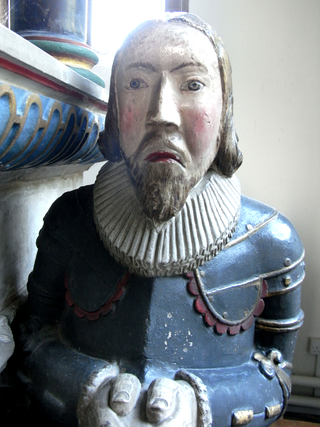
Sir Francis Popham (1573–1644) of Wellington, Somerset, was an English soldier and landowner who was elected a Member of Parliament nine times, namely for Somerset (1597), Wiltshire (1604), Marlborough (1614), Great Bedwin (1621), Chippenham 1624, 1625, 1626, 1628–29), and for Minehead (1640–1644).
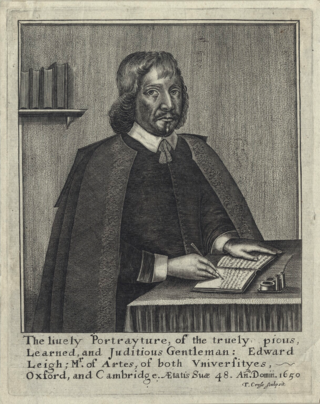
Sir Edward Leigh was an English lay writer, known particularly for his works on religious topics, and a politician who sat in the House of Commons from 1645 to 1648.
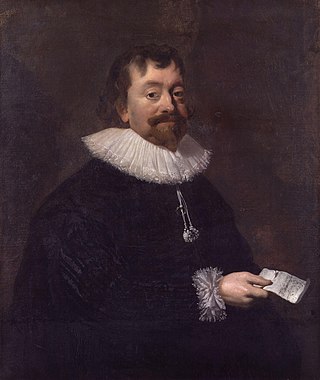
Sir Robert Phelips was an English politician who sat in the House of Commons at various times between 1604 and 1629. In his later Parliaments he was one of the leading spirits in the House of Commons and an opponent of James I, Charles I and their adviser Buckingham.
Sir Richard Dyott was an English lawyer and politician who sat in the House of Commons between 1623 and 1640. He was a Royalist during the English Civil War.

John Dawnay, 1st Viscount Downe, known as Sir John Dawnay between 1660 and 1681, was an English politician who sat in the House of Commons between 1660 and 1690.

The Honourable Henry Belasyse, or Bellasis, May 1604 to May 1647, was an English politician from Yorkshire who sat in the House of Commons of England variously between 1625 and 1642.
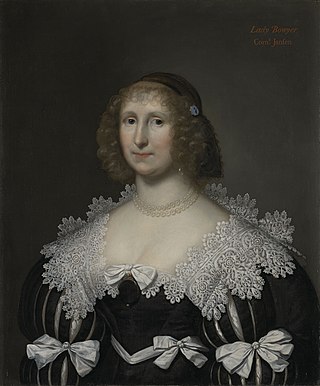
Sir William Bowyer was an English politician who sat in the House of Commons at various times between 1620 and 1641.
Sir John Cutts was an English politician who sat in the House of Commons variously between 1604 and 1640.
Sir Clipsby Crewe was an English politician who sat in the House of Commons from 1624 to 1626.
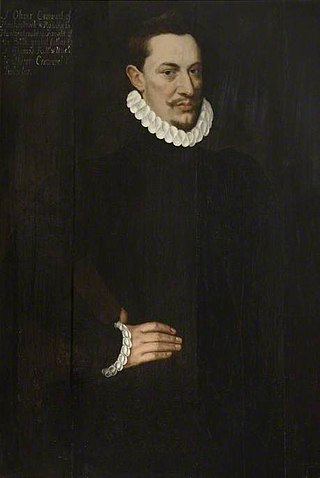
Sir Oliver Cromwell was an English landowner, lawyer and politician who sat in the House of Commons at various times between 1589 and 1625. He was the uncle of Oliver Cromwell, the Member of Parliament, general, and Lord Protector of England.
Sir John Skeffington, 2nd Baronet was an English landowner and politician, elected to the House of Commons in 1626. He was fined a high sum for supporting the Royalist cause in the English Civil War.
John Newdigate was an English politician who sat in the House of Commons from 1628 to 1629.
Sir Richard Shelton was an English lawyer and politician who served as Solicitor General between 1625 and 1634.
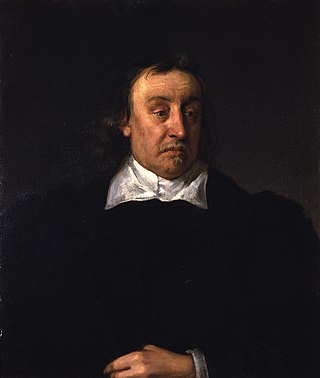
Sir Francis Prujean M.D. (1593–1666) was an English physician.
Sir Richard Newdigate, 2nd Baronet was an English landowner, entrepreneur, engineer, and politician who held the title of Commissioner for Assessment for Warwickshire, and served on the Warwickshire Commission of the Peace, as well as the Member of Parliament for Warwickshire for two separate terms. He also became well known for investing his estate’s wealth into expansions and mining ventures, and for large infrastructure projects.
John Skeffington, 2nd Viscount Massereene was an Anglo-Irish politician, official, and peer. He was one of the leading Presbyterians in Ireland during his lifetime.
References
- ↑ George Edward Cokayne Complete Baronetage, Volume 1 1900
- 1 2 3 4 "Skeffington, Richard (SKFN615R)". A Cambridge Alumni Database. University of Cambridge.
- ↑ Knights of England
- ↑ Bergin, John (October 2009). "Skeffington, John". Dictionary of Irish Biography. Retrieved 12 February 2023.